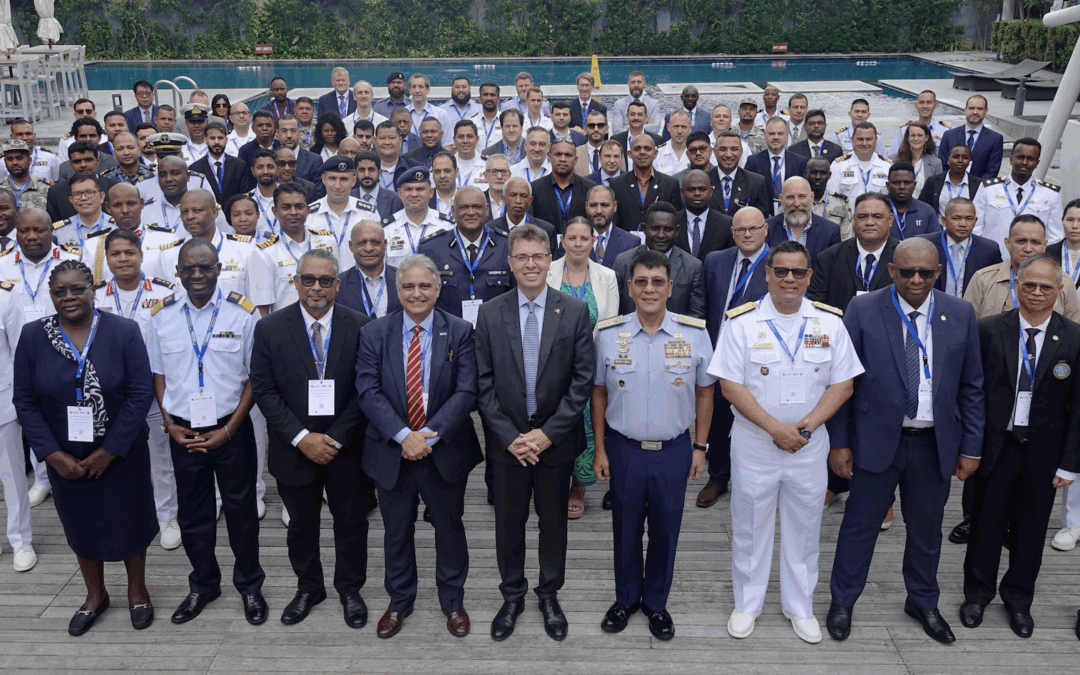In the past days, more than 120 officials representing 45 countries in the Indo-Pacific met in Manila to strengthen the multinational governance of IORIS — the coordination and information-sharing platform developed and implemented by the EU CRIMARIO project since 2018 — during the 3rd IORIS Steering Committee Policy Board and Working Groups Meeting.
Opening the event, the EU Ambassador to the Philippines Massimo Santoro remarked: “The collective presence of all partners and stakeholders today underlines our shared understanding of the need to work together across agencies and borders to uphold a peaceful, secure, and rules-based maritime order in the Indo-Pacific. The European Union stands ready to support these collective efforts, fostering coordination, resilience, and freedom of navigation in line with the rule of law and the UN Charter.”
Participants deliberated on key policy, operational and technical areas and opportunities to enhance cooperation across the region, using IORIS, from the east coast of Africa, through Asia and the Pacific, to Latin America. The event featured presentations of success stories that illustrate the platform’s tangible impact and contribution to regional cooperation. Notable examples included the interdiction of narcotics and other contraband, life-saving interventions during complex Search and Rescue (SAR) operations, coordinated counter-piracy efforts, and cooperative actions to combat illegal, unregulated, and unreported fisheries (IUU).
“This meeting set the path for IORIS to meet the evolving needs of our agencies and partners,” said Martin Cauchi Inglott, EU CRIMARIO project director. “We will align operational exercises, user feedback, and legal standards to build a future-ready system that strengthens trust and readiness.
Recognizing that maritime security challenges transcend national borders, participants worked together to plan a more effective use of the platform for interagency operational coordination and international collaboration, essential to swiftly and efficiently respond to threats at sea.
Vadm Roy A. Echeverria, Director of the National Maritime Centre concluded: “In line with the recent EU-Philippines Security and Defence Dialogue, the IORIS Steering Committee Working groups meeting will further deepen our strategic partnership, opening doors for enhanced cooperation in maritime security, hybrid threats, and regional resilience. This partnership, grounded in the rule of law and international norms, underscores our shared commitment to upholding a rules-based maritime order and increase regional cooperation on maritime security.”
During the conference, officials discussed latest IORIS improvements (such as Prime and Lite) and future plans for IORIS mobile application and variants, aimed to find suitable solutions for improving platform’s performance, usability, and operational effectiveness. Moreover, they provided feedback on system performance, identify key successes, challenges, and lessons learned, and agree on priority improvements and follow-up actions to enhance usability and operational outcomes.
The meeting also presented plans for future IORIS trainings and exercises, including frequency, participating partners, and exercise levels, highlighting the critical role of exercises in preparing agencies for future operational challenges.
Meanwhile, the Legal Working Group reviewed cases concerning the admissibility of digital evidence in different jurisdictions. They adopted a common stance on evidence obtained through IORIS and outline the legal steps required to achieve ISO 27001 certification, ensuring that digital evidence management remains secure and compliant.

